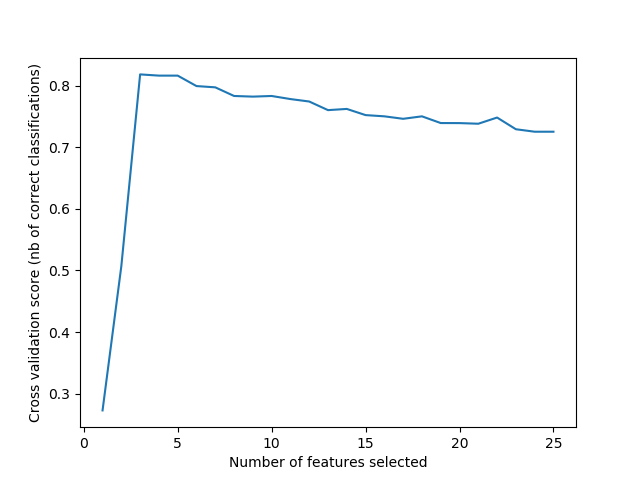Recursive feature elimination with cross-validation — scikit-learn 0.20.4 documentation (original) (raw)
Note
Click here to download the full example code
A recursive feature elimination example with automatic tuning of the number of features selected with cross-validation.

Out:
Optimal number of features : 3
print(doc)
import matplotlib.pyplot as plt from sklearn.svm import SVC from sklearn.model_selection import StratifiedKFold from sklearn.feature_selection import RFECV from sklearn.datasets import make_classification
Build a classification task using 3 informative features
X, y = make_classification(n_samples=1000, n_features=25, n_informative=3, n_redundant=2, n_repeated=0, n_classes=8, n_clusters_per_class=1, random_state=0)
Create the RFE object and compute a cross-validated score.
svc = SVC(kernel="linear")
The "accuracy" scoring is proportional to the number of correct
classifications
rfecv = RFECV(estimator=svc, step=1, cv=StratifiedKFold(2), scoring='accuracy') rfecv.fit(X, y)
print("Optimal number of features : %d" % rfecv.n_features_)
Plot number of features VS. cross-validation scores
plt.figure() plt.xlabel("Number of features selected") plt.ylabel("Cross validation score (nb of correct classifications)") plt.plot(range(1, len(rfecv.grid_scores_) + 1), rfecv.grid_scores_) plt.show()
Total running time of the script: ( 0 minutes 1.721 seconds)